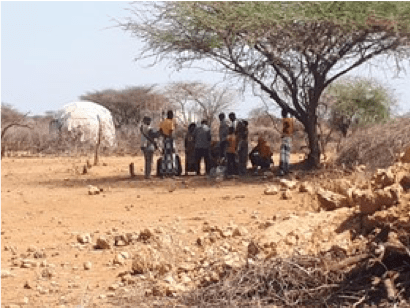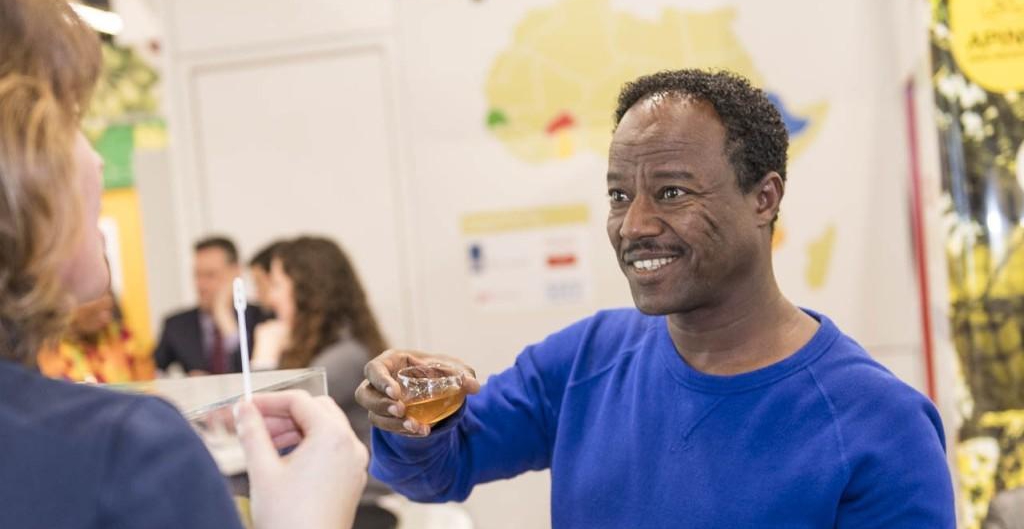For the last ten months, ProFound’s experts together with a local Ethiopian team have been working on establishing sustainable Gums and Resins supply chains in Ethiopia and linking them to international markets. As the project is coming to an end we want to share with you some of our main achievements and learnings.
Strengthening Drought Resilience in the Arid and Semi-Arid Lowlands of Ethiopia (SDR-ASAL)
Ethiopia’s rural areas face enormous environmental and socio-economic challenges that put the livelihoods of small farmers and pastoralists at risk (Humboldt Universität Zu Berlin, 2017). These environmental pressures have become evident through the increasing frequency and severity of droughts and floods, affecting semi-mobile lifestyles communities in the Ethiopian lowlands. The Afar and Somali regions are arid and semi-arid lowlands that are among the most vulnerable regions in the country. Here, more than 8 million people live and depend on pastoralism as their main source of livelihood.
In 2019, the Government of Ethiopia approved a cross-sectoral policy to end drought emergencies in the Ethiopian lowlands. The Strengthening Drought Resilience in the Arid and Semi-Arid Lowlands of Ethiopia (SDR-ASAL) Programme works towards the successful implementation of this policy. The programme is supported by GIZ – Deutsche Gesellschaft fur Internationale Zusammenarbeit GmbH Ethiopia. Amongst other objectives, the programme aims to build capacities amongst government institutions and partners in the field of planning and natural resource management and utilization.
The SDR-ASAL Programme consists of five projects in total. These projects are jointly developing an integrated approach to improve drought resilience in the pastoral and agro-pastoral communities in the Ethiopian lowlands. ProFound’s work is part of this integrated approach and is contributing directly to linking Ethiopian Gums and Resins to international markets.
Gums and resins, a vital source of income
Gums and Resins such as Frankincense, Myrrh, Gum Acacia play an important role in the daily life of many Ethiopians. They are a vital source of income for many pastoral communities in the Horn of Africa. Trade volumes are big. However, those carrying out harvest and collection at the start of the supply chain have in general poor knowledge and low skills. In addition, the sector is informal and lacks transparency. International standards such as Organic, Wild Collection, Fair Trade and Ethical BioTrade still play a limited role in Ethiopian Gums and Resins supply chains.
ProFound’s role
The main objective of the project was to establish sustainable gums and resins supply chains with focus on traceability to individual collectors. Moreover, ProFound’s role also consisted in linking collectors and collector communities of Gums and Resins to markets that comply with the standards commonly applied in the Organic, Fair Trade and Ethical BioTrade markets.
Supply chain analysis
The first steps of the project consisted in analysing the supply chains in the project areas Fiq and Ayun in Somali region. The analysis helped identifying volume potential in the areas, local aggregators of Gums and Resins and collector groups in the selected regions. After this, ProFound provided additional analysis of non-compliances with regards to international market expectations. Based on these results/insights, trainings were prepared.
Training on harvest, post-harvest, and marketing practices
Collectors were trained in collection, drying, transport, storage and marketing practices. Samples of Myrrh were presented to discuss quality, storage and traceability. A follow up on the first training has been conducted with some of the collectors too. Storage practices have been improved and the local aggregator, who signed a collector-supplier agreement, is arranging a purchase soon.
Samples and mapping
The team collected samples for analysis by the laboratory of the University of Addis Ababa. This showed a high ash content which is due to physical contamination that could be addressed in the follow-up training. European laboratory analysis of samples collected in Fiq showed good quality Gum Acacia in terms of microbiology.
Potential suppliers and collector-supplier agreement
An important component of the project was to identify potential buyers for the locally collected products. Local aggregators were selected in Fiq and Ayun and collector-supplier agreements with collectors were signed. The collectors are responsible for implementing proper collection and packaging practices, while the aggregators are responsible for drying, cleaning and storing the Myrrh and supplying the products to exporters.
An important element consisted of informing collectors and aggregators about access rights regulation that might become relevant in the future. Signing the collector-supplier agreement is a first step towards formalising collectors’ rights to access the Gum resources.
Next steps
The steps that will follow include:
- Organizing follow-up training for collectors in Fiq and Ayun to ensure traceability and quality are in compliance with international buyer requirements;
- Implementing a traceability system;
- Starting formalization of collectors group into associations;
- Linking local suppliers to exporters through field visits by the exporters.
Are you a buyer of Myrrh or Gum Acacia? Don’t hesitate to get in touch with Kasper Kerver from ProFound at kkerver@thisisprofound.com.
ProFound long history supporting Ethiopian SMEs
ProFound has a long history working with SMEs in Ethiopia. During the last decade, ProFound has worked extensively in the development of the Ethiopian honey market. As a part of the ASPIRE project, funded by the Dutch embassy in Ethiopia, ProFound developed sustainable value chains for organic honey with seven Ethiopian entrepreneurs who are processing and marketing honey.
Key results of this project included: improved incomes for a wider group of beekeepers, higher incomes for entrepreneurs exporting honey, increased awareness of organic agriculture in Ethiopia and its broader recognition in Europe.
Would you like to know more about our work supporting Ethiopian SMEs? Don’t hesitate to get in touch with us at mail@thisisprofound.com.







